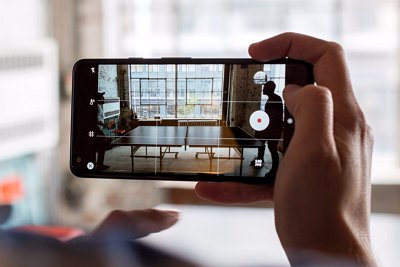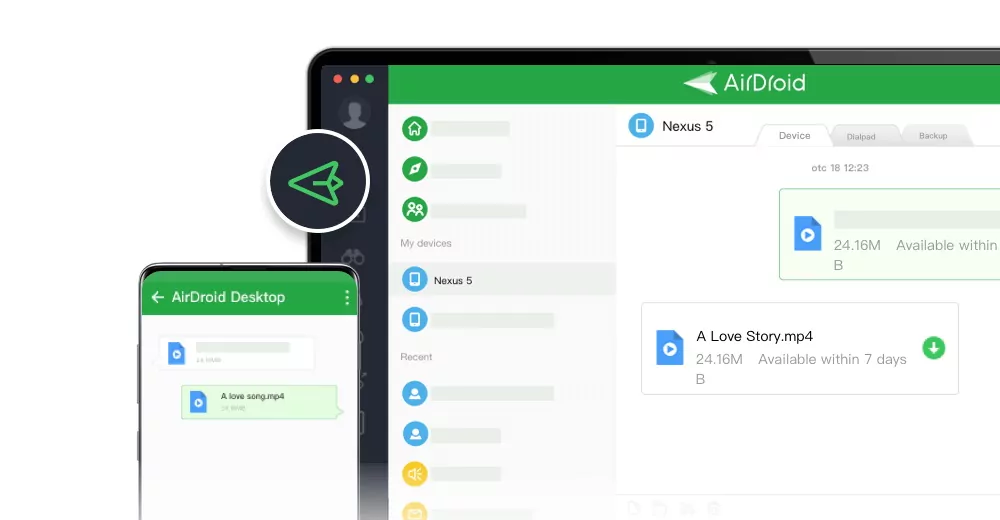Is It Illegal to Record Someone Without Their Permission?
According to the jurisdiction, different laws apply when recording someone without permission. Regional differences in recording legislation are considerable. If one of the parties agrees, you may lawfully record a conversation in various places. In others, consent to record the conversation may be given by all participants.

Furthermore, these laws have penalties that govern those who violate them, including fines and criminal cases. To avoid legal complications when recording a discussion, ensuring one is conversant with the laws in that specific region or country is pertinent. Let's examine that it is illegal to record someone without their permission in greater detail!
Is It Illegal to Video Record Someone Without Their Permission?
No, it is generally not illegal to record someone in public. In public places, the law generally allows video recording because people have less expectation of privacy there. However, there could be some legal consequences if the video is used for commercial means or in cases, which infringe with the privacy of an individual or defame them.
The requirements are more stringent if it's private. In most cases, this is considered an unlawful act by several laws and can lead to severe consequences, including arrests if caught. Private places include homes, working offices and other areas generally thought to be out of public view and where individuals reasonably expect privacy.
The Federal Wiretap Act and Secret Recording Laws by State
Handling federal and state rules is necessary to understand whether recording conversations is legal. The Federal Wiretap Act and several state laws set the parameters of acceptable recording behavior.
1The Federal Wiretap Act
In the 1960s, a public uproar arose from the government recording phone lines; thus, legal protection started with the Federal Wiretap Act. This law against interception of electronic, telephonic or oral communications prohibits the act of recording or listening to conversation in places where it would be understood that privacy is expected. Notably, there are two significant exceptions to this rule:
- Under specific circumstances, like when police officers use a recording to interfere with criminals, such a conversation may be recorded legally.
- Whether it is legal to record the conversation often depends on the state, and in some of them, it may be legal if one of the parties agrees to the act.
2Secret Recording Laws by State
Recording laws in the United States vary significantly from state to state, with different requirements for consent. Here is an overview of the recording laws for each state:
Alaska:
You can record phone calls or conversations if at least one person agrees. Recording without consent is a misdemeanor.
Alabama:
One person must agree to record phone or in-person conversations.
California:
All parties must agree to record private conversations. Breaking this law can lead to jail time, fines, or being sued.
Florida:
Everyone involved must agree to record phone or in-person conversations. Penalties range from misdemeanors to felonies based on intent.
Georgia:
You need one person's permission to record phone or oral conversations. Violations are considered felonies.
Hawaii:
You can record phone or oral conversations with one person's consent. Breaking this can lead to fines, jail, or being sued.
Kansas:
At least one person must agree to record private communications. Violations are misdemeanors and can lead to being sued.
Kentucky:
Recording phone or oral communications without one person's consent is a felony.
Mississippi:
You need one person's consent to record phone or in-person conversations. Penalties include fines, jail time, or being sued.
New Jersey:
One person must agree to record phone or in-person conversations. Recording with wrongful intent can lead to severe charges and being sued.
New York:
At least one person must agree to record in-person or phone conversations. Violating this law is a felony.
North Carolina:
One person must agree to record in-person or phone conversations. Violations are felonies and can lead to being sued.
Ohio:
Recording phone or oral conversations with one person's consent is allowed unless there's wrongful intent. Violating this law is a felony and can lead to legal action.
One-party Consent vs. Consent from All Parties
Essentials of the consent laws include the critical difference in recording conversations between the one-party and all-party consent laws. These laws define legalities regarding the recording of conversations, and, given the federalism of the United States, they vary significantly by state.
1One-Party Consent
Only one participant in the conversation may be aware that the recording is being made in a state where one-party consent is in place. You may lawfully record the conversation if you participate without telling the other participants.
States with One-Party Consent Laws:
● Alabama
● Alaska
● Arizona
● Arkansas
● Colorado
● District of Columbia
● Georgia
● Hawaii
● Idaho
● Indiana
● Iowa
● Kansas
● Kentucky
● Louisiana
● Maine
● Minnesota
● Mississippi
● Missouri
● Nebraska
● New Jersey
● New Mexico
● New York
● North Carolina
● North Dakota
● Ohio
● Oklahoma
● Rhode Island
● South Carolina
● South Dakota
● Tennessee
● Texas
● Utah
● Virginia
● West Virginia
● Wisconsin
● Wyoming
2Consent from All Parties
Every participant in the conversation must consent to the recording in states where it is lawful. This implies that you can only lawfully record the conversation after notifying each participant and getting their permission.
States with All-Party Consent Laws:
● California
● Connecticut
● Delaware
● Florida
● Illinois
● Maryland
● Massachusetts
● Michigan
● Montana
● Nevada
● New Hampshire
● Oregon
● Pennsylvania
● Vermont
● Washington
Can I Sue Someone for Recording Me Without My Permission?
Yes, you can attempt to get a court order against a person that recorded you without your permission. Notably in federal law disregarding this rule one can be imprisoned for up to 5 years or pay a fine of up to 500$. Such penalties protect individuals’ right to privacy and put down any direct recording attempt without their permission.
Steps for Legal Recording
Recording conversations can be legally complex, so understanding the laws in your jurisdiction is crucial. Here are steps to ensure your recordings comply with legal requirements:
Step 1. Understand the Law:
Research and familiarize yourself with local and federal laws regarding recording conversations.
Step 2. Obtain Consent:
Always obtain consent from all parties involved before recording, ensuring compliance with consent laws.
Step 3. Start Recording:
Once consent is obtained, you can record while adhering to additional legal requirements, such as notification or periodic consent reaffirmation.
Final Verdict
In conclusion, it's critical to put privacy rights first, even when recording can be helpful for justifiable reasons like documentation or security. Conducting recordings in an ethical and law-abiding manner is ensured by knowing and following the legal requirements of your jurisdiction. Before recording, always get permission from all parties involved.
You should also be aware of circumstances when privacy demands are higher, as in private settings or during delicate conversations. People can properly and ethically negotiate the intricacies of recording legislation by weighing the advantages of recording against respect for privacy.
Bonus Tool to Safeguard Your Child's Online Privacy
If you're parents looking to safeguard your child's online privacy, consider using AirDroid Parental Control. This comprehensive tool allows you to monitor their online activities, set screen time limits, and manage app usage, ensuring a safe and secure digital environment for your children.
- Monitor their time usage and screen time
- Set clear screen rules and guidelines
- Block potentially harmful websites and apps
- Sync notifications from your child's phone












Leave a Reply.